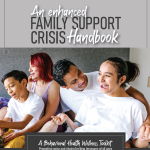US: Designated Placements In, Conversation Therapy Out: Biden's Rule for LGBTQ+ Foster Youth (Requires subscription) Inprint - May 06, 2024 In the fall of 2023, the Biden administration released planned rulemaking around two issues in child welfare: legal representation for children and … [Read more...]
NJ: CASA Re-brands, Brings Services to Union County
NJ: CASA Re-brands, Brings Services to Union County Westfield Leader - May 02, 2024 For decades, Court Appointed Special Advocates (CASAs) have worked to provide a sense of security and continuity for children who find themselves caught up in the court system as their parents and caregivers … [Read more...]
US: A Proclamation on National Foster Care Month, 2024 (Press release) White House - April 30, 2024 The nearly 370,000 children in foster care deserve to grow up in safe and loving homes that help them reach their full potential. During National Foster Care Month, we share our gratitude for … [Read more...]
US: With New Rule, Biden Administration Strengthens Protections for LGBTQI+ Youth in Foster Care System (Press release)
US: With New Rule, Biden Administration Strengthens Protections for LGBTQI+ Youth in Foster Care System (Press release) Human Rights Campaign - April 29, 2024 The Human Rights Campaign (HRC) - the nation's largest lesbian, gay, bisexual, transgender and queer (LGBTQ+) civil rights organization … [Read more...]
S: Designated Placement Requirements Under Titles IV-E and IV-B for LGBTQI+ Children (Press release)
S: Designated Placement Requirements Under Titles IV-E and IV-B for LGBTQI+ Children (Press release) US Administration for Children and Families - April 30, 2024 This rule finalizes requirements under titles IV-E and IV-B for children in foster care who are LGBTQI+ (an umbrella term used in … [Read more...]
Adult Adoptee Experiences Report
Adult Adoptee Experiences Report: The National Council for Adoption (NCFA) a national advocacy, training and resource center recently published a new report on the “Adult Adoptee Experiences.” NCFA’s new research report examined the multifaceted experiences and perspective of over 1200 adult … [Read more...]
An-Enhanced-Family-Crisis-Handbook-A-Behavioral-Health-and-Wellness-Toolkit-2024
The purpose of this expanded version of the Toolkit is to empower individuals with disabilities and their family and professional caregivers by providing information to more effectively advocate for persons with complex severe behavioral health conditions (which we formerly referred to as “dual … [Read more...]
NJ: Passaic County CASA, a nonprofit devoted to child welfare, changes its name (Includes video) (May require subscription)
NJ: Passaic County CASA, a nonprofit devoted to child welfare, changes its name (Includes video) (May require subscription) NorthJersey.com - April 04, 2024 A local nonprofit founded 16 years ago as Passaic County CASA officially changed its name this week to better reflect its mission to … [Read more...]
US: New Beginnings For Grandparents Raising Grandchildren
US: New Beginnings For Grandparents Raising Grandchildren Grand Magazine - April 08, 2024 Regardless of the grandparent's age or how long they end up caring for the child when their grandbabies come into their care full-time, it is often unexpected and overwhelming. New Beginnings! To many … [Read more...]
US: Foster children deprived of benefits: How a loophole affects the most vulnerable (Includes video)
US: Foster children deprived of benefits: How a loophole affects the most vulnerable (Includes video) KFMB - April 07, 2024 Katrina White remembers just how determined her parents were to see her, and all her siblings, go to college. That never happened. She lost her father when she was nine … [Read more...]
- « Previous Page
- 1
- …
- 10
- 11
- 12
- 13
- 14
- …
- 33
- Next Page »

